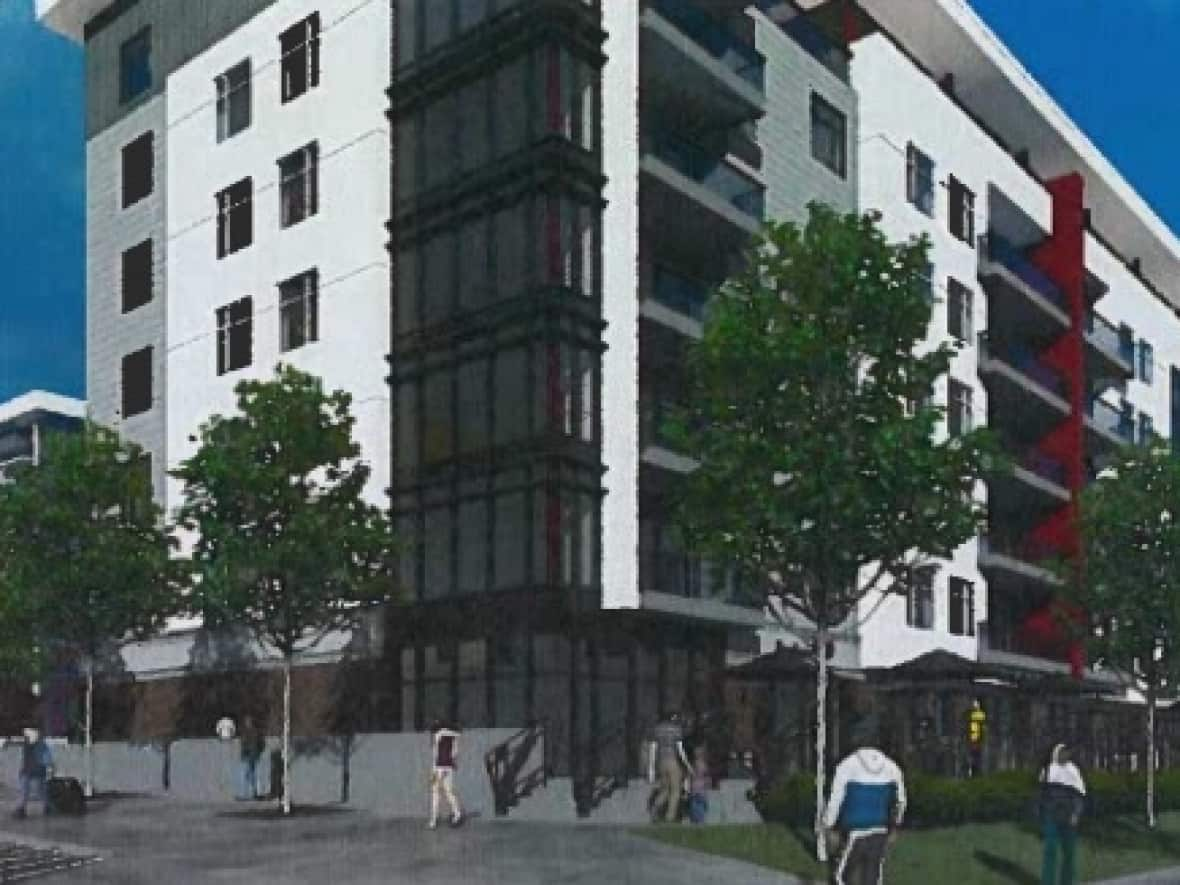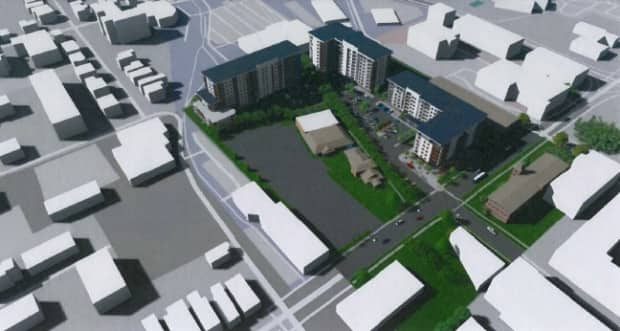Fredericton apartment complex with no 'affordable' units gets committee go-ahead

None of the nearly 300 units in a new downtown Fredericton apartment development can be considered affordable, according to the developer, who cited rising costs as a reason and suggested the city take a larger role in alleviating local housing problems.
At a meeting this week, Craig McElroy of York Street Properties Ltd. was asked by the planning advisory committee what plans there were affordable units within the project.
McElroy told the committee that because of the high cost of the downtown land and rising expenses, the cost of including affordable or social units in the building would be prohibitive. The likely rent for the apartments wasn't disclosed at the meeting.
McElroy identified some factors contributing to the high cost of building.
"The most recent COVID cost increases that we have on everything, we have new energy code requirements, and just the cost of the large buildings required to obtain the downtown design density desired by the city's municipal plans."
McElroy added that the development group has other affordable housing.
The project will include three apartment towers, one seven storeys high and two that will be 10 storeys high, at 390 York St., on the former railway land that surrounds the N.B. Liquor store. York Street Properties bought the land for $3.8 million in 2020.
The planning committee approved the zoning change to allow for more than one building on a lot and the height variance of 7.8 metres needed for the project.
A lack of affordable housing in new construction in Fredericton has long been an issue.
According to the Centre for Urban Research and Education at Carleton University in Ottawa, census numbers show that New Brunswick lost 4,700 affordable rental units between 2011 and 2016. That's using a $750 per month benchmark to be considered "affordable," or 30 per cent of a household income of $30,000.

Thousands of people are on the waiting list for affordable housing in the province.
But McElroy told the committee it is unfair to put that burden on developers.
"Everything is so expensive right now, including taxes, it's almost impossible to build affordable housing, regardless of what definition you use," he said, referring to housing that is considered affordable and housing that is subsidized.
McElroy suggested that instead the municipality use the money collected from higher taxes paid on the property to put toward housing, or even to lower the property rate. He said property taxes make up 35 to 40 per cent of the operating costs of an apartment building.
"I couldn't agree more that the city should use some of our additional property tax money to consider helping with affordable housing and making these projects more viable," said Coun. Cassandra Blackmore, a member of the committee.
Committee member Coun. Eric Megarity told McElroy that the city was limited in what it could do to advance affordable and social housing projects.
"It's hard to force developers into that without any backup from our governments," Megarity said. "But I can tell you this: on the Municipalities Act, we're very restricted with what we can do."
Megarity said he's hopeful the White Paper on Municipal Reform will bring in changes, such as an ability for a municipality to adopt inclusionary zoning, which requires that a certain amount of housing in a new development be affordable to people with low to moderate incomes.
But McElroy said inclusionary zoning isn't a great option either.
"It's a really complicated political topic right now," he said. "And it's a buzzword that a lot of people are going to use without really understanding all the implications with it.
"It's a very old concept that has never really proven effective and has actually had a negative effect on development in most instances."
Blackmore suggested that McElroy and other developers use their voices to lobby different levels of government for the funding needed to provide affordable housing.
"And not just advocating for the removal of the double tax," she said. What landlords call the "double-tax" levies a provincial tax on top of the municipal tax for buildings like rental properties and cottages.
She said she hoped landlords would also lobby for mechanisms that could lead to lower-cost housing, since there's no proof owners would simply be "magnanimous" if taxes were lowered.
Farhad Rezaei Noei, member at large on the committee said he had concerns about the architecture of the buildings and how the development would relate to the train station liquor store.
He also questioned how traffic in the area would be affected.
"I believe it's going to be a mess, especially in the winter and I don't know how many people are going to live here, but I don't like it, I'm not comfortable with that. It's too many people, too many cars."
Staff said it estimated that 250 cars would be added at peak times in the morning and the afternoon.
The project has to get approval from council before going ahead.


